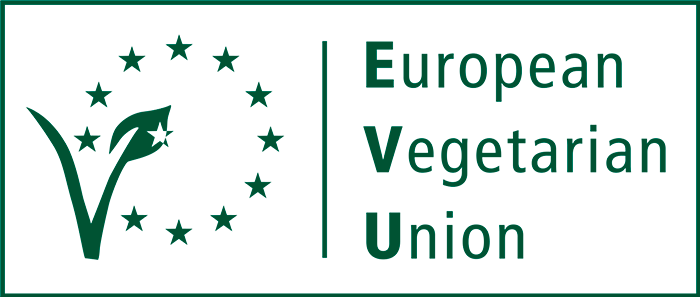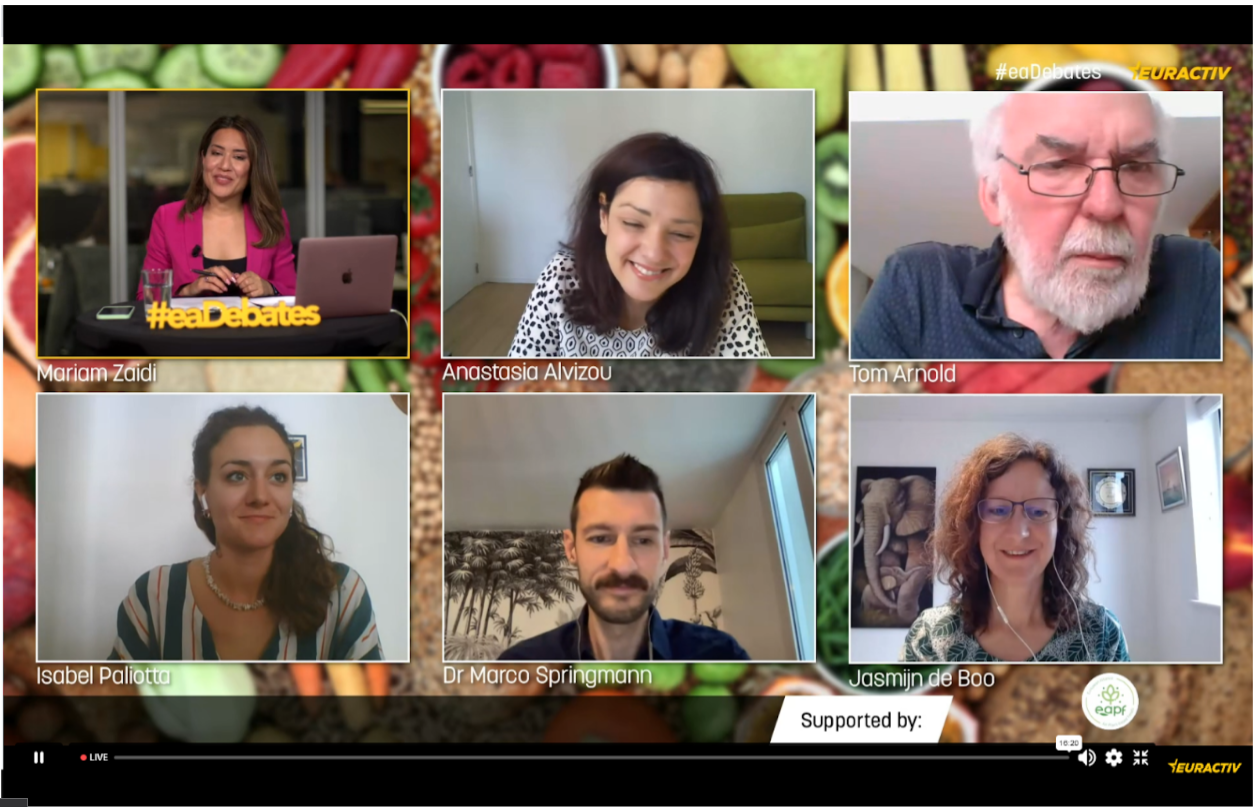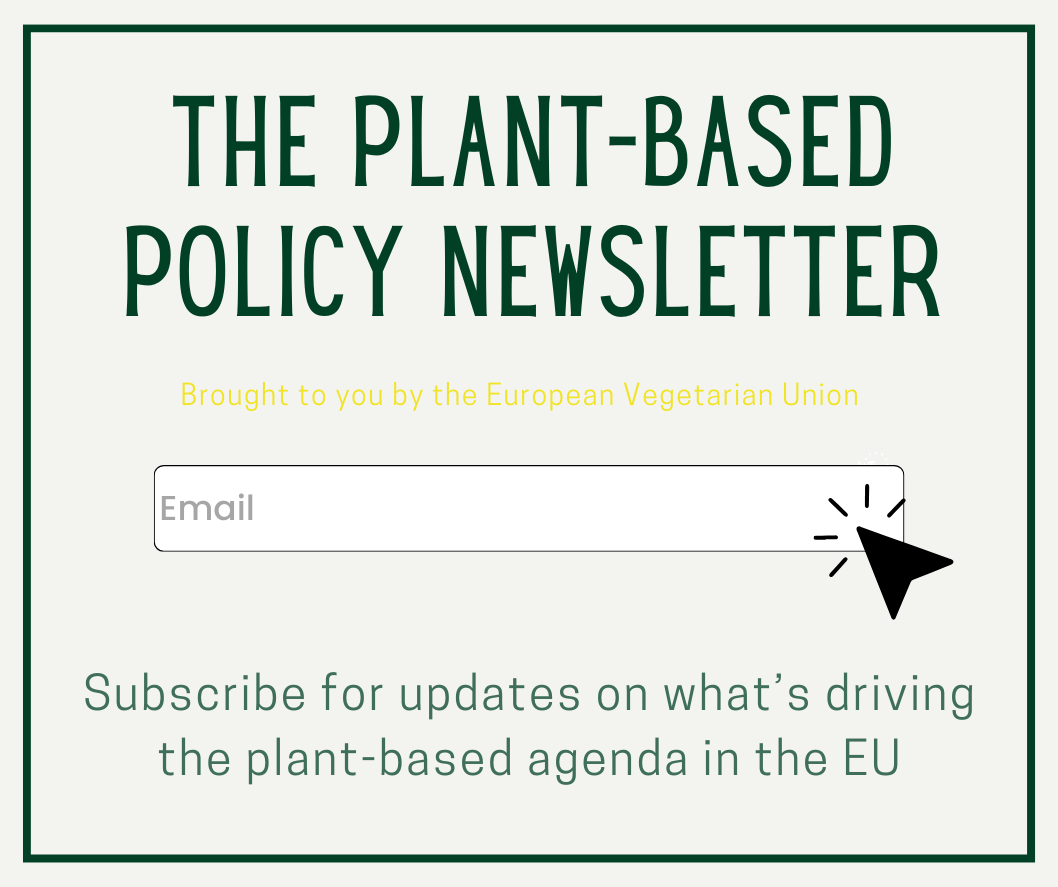The European Vegetarian Union (EVU) attended on 20 June a high-profile event organised by Euractiv and the European Alliance for Plant-based Foods (EAPF) – the latter of which the EVU is a member – to discuss the European Union’s Farm to Fork Strategy and the proposed legislative framework for sustainable food systems (FSFS). The event aimed to explore the challenges associated with establishing sustainable food systems and discuss the necessary measures to accelerate the transition toward a fair, healthy, and environmentally-friendly food system.
The Farm to Fork Strategy lies at the heart of the Green Deal, addressing the pressing challenges posed by unsustainable food systems. These systems contribute significantly to climate change and environmental degradation.
During the online event, representatives from various organisations and institutions shared their perspectives on the Farm to Fork Strategy and the proposed legislative framework for sustainable food systems.
Anastasia Alvizou, from the European Commission’s Directorate-General for Health and Food Safety (DG SANTE), emphasised the importance of establishing a balanced food environment that stimulates sustainable food choices. She acknowledged the overconsumption of red meat and dairy and stressed the need to promote plant-based diets without banning any specific products. Alvizou also highlighted the need for collaboration among stakeholders in the food value chain to ensure effective implementation of sustainable practices.
Isabel Paliotta, Policy Officer for Sustainable Food Systems at the European Environmental Bureau (EEB), called for a shift in focus from production to processing, marketing, consumption, and waste management. Paliotta emphasised the need for structural changes to address current dietary patterns and reduce the production of animal-based products, which contribute significantly to land use issues. She advocated for public action to tackle harmful subsidies and underscored the importance of revising national dietary guidelines.
The necessity of setting ambitious and quantifiable targets for dietary changes, specifically advocating for a shift towards plant-based and flexitarian diets was stressed by Dr Marco Springmann. He highlighted the crucial role of the food environment in enabling such a transition and the need for fiscal measures that reflect the true cost of meat and dairy products – including their environmental, biodiversity, and health impacts.
Jasmijn de Boo, Global CEO ProVeg International, Vice-President of the EAPF and an EVU Board Member, criticised the Common Agricultural Policy (CAP) and promotion policies for encouraging meat consumption. She underlined the need for incremental changes through political measures, such as public procurement, fiscal measures, and just labelling. De Boo highlighted the issue of higher taxes on plant-based alternatives, calling for fair taxation and an end to subsidies for harmful products and production. She emphasised the importance of research and innovation in driving the transition to sustainable food systems.
The event concluded with a call for a comprehensive approach to address the challenges of sustainable food systems, incorporating production, consumption, waste management, and public policies. The EVU will continue to call on the need to focus on plant-based diets, create a fair tax and subsidy system that promotes more sustainable alternatives, and vitally, use public food procurement as a key tool.
As the proposed legislative framework for sustainable food systems approaches adoption, it is evident that collaboration between stakeholders, fiscal measures, and supportive policies will be crucial in achieving a sustainable and healthy food future for Europe and beyond.


